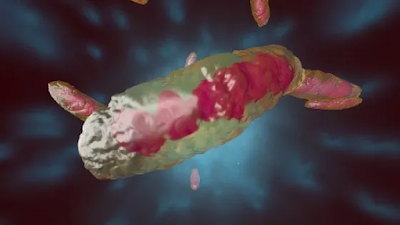L’autofagia mitocondriale è un nuovo target molecolare per contrastare il fenomeno della resistenza ai farmaci platinanti / Mitochondrial autophagy is a new molecular target to counteract the phenomenon of resistance to platinating drugs
L’autofagia mitocondriale è un nuovo target molecolare per contrastare il fenomeno della resistenza ai farmaci platinanti / Mitochondrial autophagy is a new molecular target to counteract the phenomenon of resistance to platinating drugs
Segnalato dal Dott. Giuseppe Cotellessa / Reported by Dr. Giuseppe Cotellessa
Un gruppo di ricercatori dell’Università di Padova e dell’Istituto Veneto di Medicina Molecolare (VIMM), coordinato dalla Prof.ssa Monica Montopoli e dalla Dott.ssa Marta Giacomello, ha dimostrato come la Mitofagia sia un processo chiave nel fenomeno della resistenza ai farmaci platinanti.
La ricerca “Cisplatin resistance can be curtailed by blunting BNIP3-mediated mithocondrial autophagy”, condotta dalla Dott.ssa Caterina Vianello e pubblicata sulla rivista “Cell, Death and Disease” riporta i risultati degli studi sul processo cellulare di degradazione autofagica selettiva dei mitocondri.
“Il cisplatino ed i suoi derivati sono agenti chemioterapici utilizzati in prima linea nel trattamento di diversi tumori solidi, tra cui carcinomi ovarici e sarcomi - spiega la Prof.ssa Montopoli – Tuttavia, la resistenza a questi farmaci spesso ne impedisce l’efficacia terapeutica: comprendere i meccanismi molecolari alla base di questo fenomeno è quindi fondamentale per la ricerca sul cancro”.
Il gruppo internazionale di ricercatori ha osservato in particolare che nell’osteosarcoma e nel carcinoma ovarico con fenotipo resistente, i livelli di mitofagia sono aumentati, causando cambiamenti anche nella morfologia mitocondriale e nella sua comunicazione con il reticolo endoplasmatico. Questi cambiamenti sono dovuti in particolare al recettore mitofagico BNIP3, particolarmente espresso nei diversi modelli sperimentali analizzati ed incluso in dati clinici di pazienti affetti da cancro ovarico resistente ai trattamenti platinanti.
Alla luce di questa scoperta, i ricercatori hanno messo a punto un approccio farmacologico basato sull’utilizzo di due nuovi inibitori della proteina VSP34 che bloccano la formazione di autofagosomi, in combinazione con il cisplatino. Tale trattamento combinatorio si è dimostrato efficace nel sensibilizzare le cellule resistenti al chemioterapico, ponendo così le basi per lo sviluppo di una nuova strategia terapeutica atta a contrastare la resistenza al cisplatino nel carcinoma ovarico e nell’osteosarcoma.
“Grazie alla scoperta di questa correlazione tra mitofagia (ed in particolare BNIP3), e resistenza al cisplatino– conclude la Prof.ssa Montopoli– il nostro lavoro potrà fornire un possibile biomarcatore per individuare la resistenza al chemioterapico e dare avvio allo sviluppo di nuove strategie terapeutiche per contrastare la resistenza al cisplatino”.
ENGLISH
A group of researchers from the University of Padua and the Veneto Institute of Molecular Medicine (VIMM), coordinated by Prof. Monica Montopoli and Dr. Marta Giacomello, demonstrated how Mitophagy is a key process in the phenomenon of resistance to platinating drugs.
The research "Cisplatin resistance can be curtailed by blunting BNIP3-mediated mithocondrial autophagy", conducted by Dr. Caterina Vianello and published in the journal "Cell, Death and Disease" reports the results of studies on the cellular process of selective autophagic degradation of mitochondria.
"Cisplatin and its derivatives are chemotherapeutic agents used in the first line in the treatment of various solid tumors, including ovarian carcinomas and sarcomas - explains Prof. Montopoli - However, resistance to these drugs often prevents their therapeutic efficacy: understanding the molecular mechanisms underlying this phenomenon is therefore fundamental for cancer research ".
The international group of researchers noted in particular that in osteosarcoma and ovarian cancer with a resistant phenotype, the levels of mitophagy have increased, also causing changes in mitochondrial morphology and in its communication with the endoplasmic reticulum. These changes are due in particular to the mitophagic receptor BNIP3, particularly expressed in the various experimental models analyzed and included in clinical data of patients with ovarian cancer resistant to platinating treatments.
In light of this discovery, the researchers developed a pharmacological approach based on the use of two new inhibitors of the VSP34 protein that block the formation of autophagosomes, in combination with cisplatin. This combinatorial treatment has proved effective in sensitizing cells resistant to chemotherapy, thus laying the foundations for the development of a new therapeutic strategy aimed at counteracting resistance to cisplatin in ovarian cancer and osteosarcoma.
"Thanks to the discovery of this correlation between mitophagy (and in particular BNIP3), and resistance to cisplatin - concludes Prof. Montopoli - our work will be able to provide a possible biomarker to identify resistance to chemotherapy and start the development of new strategies therapeutics to counteract resistance to cisplatin ".
Da:
https://www.lescienze.it/news/2022/04/29/news/l_autofagia_mitocondriale_e_un_nuovo_target_molecolare_per_contrastare_il_fenomeno_della_resistenza_ai_farmaci_platinanti-9288753/?fbclid=IwAR0lPi-4WdrzmOueOjZeATqjxDucTISWFigi2l61sCEx05kFokAUehGn9R8




Commenti
Posta un commento